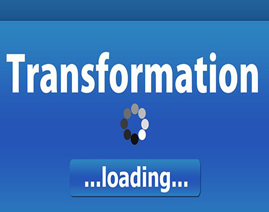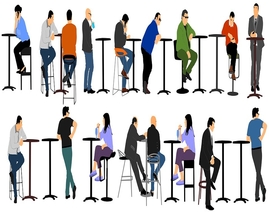Seizing Opportunities in the ICT Sector
The Increased Pace of Digital Transformation
Automation, digitalisation, artificial intelligence (AI), data analytics. These are not new concepts or processes and certainly not an outcome of the COVID-19 crisis, having already been articulated in the Infocomm Media (ICM) Industry Transformation Map in 2017. In the beginning of 2017, the Future Jobs, Skills and Training (FJST) Team of NTUC produced an analysis of jobs and skills in the Infocomm Tech (ICT) to highlight the in-demand jobs and skills. Subsequently, in August 2018, FJST together with the Tech Talent Assembly (TTAB), produced an Insight Report on “Future Jobs, Skills and Training in InfocommTechnology Industry”.
What is clear, in the past months, is that while COVID-19 has disrupted many businesses and companies, it has also accelerated digital transformation. To quote Mr Satya Nadella, CEO of Microsoft Corporation, “As Covid-19 impacts every aspect of our work and life, we have seen two years' worth of digital transformation in two months.”
Infocomm Tech (ICT) Jobs and Opportunities in Singapore
Through my recent Facebook and Zoom “Live” sessions and engagement sessions pre-COVID-19, many of the PMEs I met expressed concerns on not knowing which training courses to go for and also the ever-changing skills requirements in the ICT sector. PMEs I spoke to also wanted to know more about how ICT roles in Singapore would be impacted such as the skills required. They were also curious on, whether Singapore sees the same trends as global markets do. For example, digital marketing and AI jobs are often cited as in-demand jobs internationally, is this also true for Singapore and especially in the ICT sector?
Therefore, I was heartened when NTUC and TTAB came together on a research study “Jobs and Skills for ICT Professionals” to analyse how ICT jobs were evolving in Singapore, taking into consideration COVID-19 impact. Through in-depth interviews and six focus group discussions with over 50 Chief Information Officers (CIOs) and Chief Technology Officers (CTOs) from both the private and public sectors in Singapore, it provided a perspective of the challenges and competition from ICT professionals based overseas.
I was also very encouraged that the findings and recommendations from the study received support and endorsement from the IT Management Association and Singapore Computer Society as well as validation from Government Technology Agency (GovTech), and Infocomm Media Development Authority (IMDA).
Some of the main findings from the study are:
(a) Accelerated Competition
With remote working more prevalent, companies now find it easier and motivated to tap on regional based tech PMEs with lower service costs and availability of skillsets.
(b) Opportunities
With accelerating digitalization, for tech PMEs who have good business domain knowledge, there are increased job opportunities to move across into business support roles or managing digital operations within business lines. This is especially so for mid-career PMEs who can leverage on their wealth of experience to complement technical and technological skills.
(c) Training
To have an edge over regional-based tech PMEs, there is the need for local tech PMEs to have not only the technological skills but also adaptive skills, and the ability to manage and integrate cultural diversity and resources within a regional setup.
The results from this study also showed several opportunities in the employment landscape for ICT professionals in the next three years and can be used as a guide for ICT professionals in deciding which areas to upskill and the relevant training needed:
.jpg)
What Can You Do to Prepare for The Changes?
New Graduates
If you are just starting out in your career – be it in the ICT sector or in an ICT-related job, I urge you to enhance your knowledge in the in-demand skills through relevant application in the industry. This could be in the form of technology bootcamps, internships, traineeships and scholarships or job openings in GovTech, and IMDA. A total of 19,000 traineeships in areas such as infocommunications, engineering and marketing are created under the SGUnited Jobs initiative. (>https://www.straitstimes.com/
Mid-Career PMEs
While many companies may have set up their branches overseas or have offshored their R&D, they still maintain their "nerve centre" in Singapore. If you are a mid-career professional in the ICT sector, good business domain knowledge will give you a competitive edge and help in seizing job opportunities so that there is an ease in moving across business support roles or managing digital operations within business lines.
If you have a wealth of experience in areas such as project management and problem-solving, you can add value to emerging ICT jobs by complementing the technical and technological skills needed with the required adaptive skills.
TTAB will be working with industry partners to develop a skills barometer and this will provide an aggregated view. One way to identify one’s current skills is to tap on the upcoming skills barometer by TTAB and thereafter complement one’s technical and technological skills with courses in communication and cross-cultural appreciation.
There are numerous e-learning courses offered by SkillsFuture Singapore and Singaporeans over 40 years old are also eligible for further subsidies. ICT professionals can proactively tap on the various government funding and support for training and reskilling to adapt to changing skill demands.
To conclude, we are living in challenging and unpredictable times. It will require an agile mindset to stay relevant in this ever-changing economic environment. And I am confident that we will come out more ready and resolute.
You May Also Like

Install These Free Security Tools Now!
Have you heard of intrusion detection systems? Also known as IDS, this software is often used to det...

Crowdfunding drives unprecedented efficiency
Crowdfunding has become the center of attention in the field of financing. It is also an increasingl...

Everything As a Service
Transition from Capex economy to Opex Economy World is in a transition from Macro to Micro. Granula...

IoT in Malaysia – 2019 Predictions
The year 2014 is when Malaysians started to Google the term “IoT” and ever since, the hy...

The business case for 5G
As of 2018 ,33 MNOs have been involved in 5G trials within Asia Pacific, accounting for 44% of 77 tr...

A New Face On Digital Transformation: Engagement Innovation
Whether we believe it or not we are in the fourth industrial revolution – The Digital Revoluti...

Technology & Competitive Data Analysis More Money – More Competition; everyone wins
Technology & Competition – More Money, Better Deal for Consumers & Companies – H...

Anatomy of Fintechs that’s redefining Financial services business models.
On a weekend in 2013 during monsoon I invited my friend and his family for a dinner at my place. It ...

Blockchain Taxation
World has paid a heavy price for trust, transparency, controls and accountability. Globally there i...

Why Is CDR / CDNR So Important?
Addressing the Fundamental Deficiency in Today’s Mainstream Cyber Security Strategies From Det...

CIO Business leadership - shifting from tech to business leadership
CIOs are no longer technocrats, they are business enablers and crucial part of organisation. CIOs sh...

Ideas and Opinions | 5G as an Enabler of Smart Cities
When 5G comes to mind these days, we think of “is this REALLY it?” and “have we re...

Lessons in Machine Learning
More organizations are using machine learning for competitive reasons, but their results are mixed. ...

Digital Indoor System: Critical Infrastructure for Digital Economic Transformation
Digital Indoor System: Critical Infrastructure for Digital Economic Transformation Developme...

The Changing DNA of the CIO CIO as Business Enabler
The idea that the role of the CIO has now gone beyond technology and innovation related issues, and ...

Today's Digital Miners
Today's Digital Miners I guess by now everyone of us who have read an article or two on digital...

Digital Transformation Readiness Test for Banks
Digital Transformation Readiness Test for Banks The questions banks need to try to answer to test ...

What is Machine Learning
What is Machine Learning? According to Tom Mitchell, a professor at Carnegie Mellon University has d...

Transformation of industry verticals through 5G – Focus and Look Indoors
Transformation of industry verticals through 5G – Focus and Look Indoors Now that 5G is...

Humanize Technology - back to the basics of serving human needs, humanly
Humanize Technology - back to the basics of serving human needs, humanly The subjects of Digital Tr...

Creating the foundation for Sustainable Innovation
Creating the foundation for Sustainable Innovation In 2011, Marc Andreessen famously proclaimed tha...

About Tech Data Diversity And Inclusion
About Tech Data Diversity And Inclusion I am excited about attending the Hispanic IT Executive Coun...

Digital Transformation: Customer Centricity & Intimacy
Digital Transformation: Customer Centricity & Intimacy It was inspiring listening to IMD Profess...

Is Industry 5.0 putting humans back in the center
Industry 4.0 focused on the machines. Is Industry 5.0 putting humans back in the center? I was on a...

Importance of IT Resilience
Importance of IT Resilience Disclaimer: The posting written here is solely of my own comment and ...

Implementing a SaaS Solution – The 3 Major Technical Challenges
So when are you planning to implement a SaaS (Software as a Service) solution? Very soon, if not alr...

So you want an #Innovation Hub?
Innovation, Design Thinking, Digital, Disruption, Agile, Transformation - these are new buzz words t...

The Unsung Hero; The Data Scientist
It is quite likely you are wondering ‘what on earth’ am I on - for cooking up such a tit...

How POC projects made me a better Project Manager
How did I get here? Project Management is a tough job. We need to keep a track on budgets, timeline...

How Data and AI can help in COVID-19 crisis
Since the first report of coronavirus (COVID-19) in Wuhan, China, it has spread to at least 100 othe...

Building thriving business partnerships with Open API
Apple and Google recently collaborated to assist in enabling contact tracing and reducing the spread...

The Future of Indoors with Digital Indoor Systems
Digital Transformation, 5G, and COVID-19 have triggered further growth in indoor traffic Digital tr...

CoVID19, Digital, ML
CoVid19 hit us and has now created the “new Normal” in terms WFH, Video conferences, bal...

Do we really need CEOs, CFOs, and CIOs?
Why CMOs and CTOs are all you need to succeed in today's world This is my first article in a se...

Cinématographe by the Lumière Brothers & History of AI
The Lumière brothers, Auguste and Louis, French inventors and the pioneer manufacturers...

Avenues To Expedite The Incorporation Of 5G Into Industry
5G has been launched in Asia Pacific. South Korea, China, the Philippines and other countries have b...

4G/5G Fixed Wireless Access: A Critical Revenue Growth Engine
In studying key success factors of solutions, it can almost always be shown that the underlying conc...

Big Data Machine Learning IoT and PI
In the era of the Internet of Things (IoT), an enormous amount of sensing devices collect and genera...

Asia’s Plan To Leverage 5G Is Missing A Regional Strategy
The day the world’s first commercial 5G services promised a “great leap” is still ...

Learning from #COVID19…Would remote working be the new normal?
Musings of a Technology Evangelist In the past few months, we have all learnt many new terms&hellip...

Principles of Sustainable Cybersecurity
In past few years the annual rate of cybersecurity breaches has almost been doubled, and as a result...

Data Governance a key element for Digital Transformation
For the last few years, corporate environment, used to speak and hear lots of financial/management t...

Seven Traits of a Millennial CEO
With a staff strength and annual turnover in the order of billions and trillions respectively, Chris...

What is a Pass Key and Is Now the Time To Adopt Them?
What is a Pass Key and Is Now the Time To Adopt Them? There has been recent news about a mass...








Patrick Tay Teck Guan,
Member of Parliament, Assistant Secretary-General NTUC
Patrick Tay Teck Guan is a Singaporean politician. A member of the >People's Action Party (PAP), he currently serves as a member of parliament (MP) for the >West Coast Group Representation Constituency, or GRC in short. He also holds jobs at the National Trades Union Congress and the Singapore Manual and Mercantile Workers' Union. In 2010, Tay received the >Bintang Bakti Masyarakat (i.e. Public Service Star in >Malay). He is one of the several Assistant Secretary-General of the National Trades Union Congress. He attended Harvard University's six-week Advanced Management Programme in 2014. From 1995 to 2002, Tay worked at the >Singapore Police Force. At the time when he left the force, he held the appointment of Commanding Officer of the >Special Tactics and Rescue Unit. Since April 2002, Tay has been serving as the National Trade Union Congress' Legal Services Department's Director as well as the Executive Secretary of the Singapore Manual and Mercantile Workers' Union since November 2012